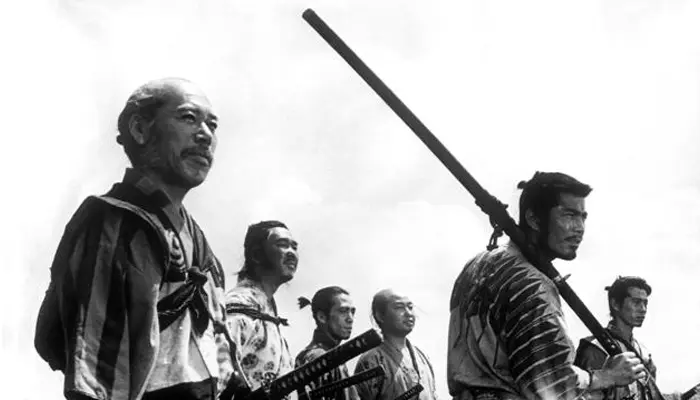Step into the Word of Katanas and Honor: A look at the 5 best Samurai Films!
Exploring a spectrum of samurai cinema, from 'Seven Samurai' to 'Yojimbo' to 'Harakiri.'
- Jayati
- 09 April, 2024
- 2 mins ago

Step into the Word of Katanas and Honor: A look at the 5 best Samurai Films!
Exploring a spectrum of samurai cinema, from 'Seven Samurai' to 'Yojimbo' to 'Harakiri.'
There is an astonishing abundance of remarkable samurai movies available, with the finest ones originating from Japan. Just as Westerns celebrate cowboy culture, samurai films honour the ancient warriors of Japan, primarily from the late 12th century to the 1870s. While not exclusively centred on swordsmen, samurai films often highlight their significance, much like how Westerns portray the importance of gunslingers. As a result, most samurai films offer captivating action sequences, with varying degrees of emphasis on combat scenes. So, let’s look at the best ones.
Harakiri (1962)
Directed by Misaki Kobayashi
Harakiri stands out among samurai movies for its poignant critique of samurai culture and its slow-burning narrative. Through flashbacks, a man recounts how a clan of samurai affected his life, hinting at a quest for revenge. Widely acclaimed as one of the top films of the 1960s, Harakiri masterfully explores dark themes while displaying breathtaking cinematography. Despite its sparse action scenes, the film delivers tense moments and infrequent but striking sword fights, making its place a bold and unforgettable entry into the genre.
Lady Snowblood(1973)
Directed by Toshiya Fujita
Lady Snowblood stands as an iconic Japanese samurai film, renowned for its powerful revenge narrative and captivating portrayal of a young girl trained as a formidable warrior. Meiko Kaji delivers a legendary performance, adding depth to the fast-paced and emotionally charged storyline. While it serves as an excellent introduction to classic samurai cinema, its brilliance may overshadow other films in the genre. Although technically a duology, with one sequel, Lady Snowblood's superior quality in the first part makes the second installment pale in comparison.
Seven Samurai (1954)
Directed by Akira Kurosawa
Seven Samurai is the very epitome of Japanese cinema, widely regarded as one of the greatest films ever made. Set in a town threatened by raiding bandits, it follows a group of warriors hired to defend it. The film masterfully structures its 3.5-hour runtime, seamlessly blending training sequences with a climactic battle. It's a flawless action epic, captivating viewers with its swordplay and storytelling. With its impeccable pacing and absence of flaws, Seven Samurai stands as the ultimate samurai movie and a timeless masterpiece of cinema.

Yojimbo (1961)
Directed by Akira Kurosawa
Yojimbo, released a year before its sequel Sanjuro, reigns supreme as the better of the two. Its classic narrative, revolving around a lone wolf navigating a town torn apart by gang warfare, has been emulated in numerous films. The protagonist cleverly manipulates both factions, orchestrating their downfalls. While not action-packed, Yojimbo captivates with its slow-burn tension and compelling storyline. Sergio Leone's Fistful of Dollars, inspired by Yojimbo, shares a similar premise in a Western setting. Yojimbo's influence is undeniable, given its excellence, compactness, and overall satisfaction. It stands as one of Akira Kurosawa's finest directorial achievements.
Samurai Assassin (1965)
Directed by Kihachi OkamotoSamurai Assassin skillfully condenses a complex plot into a two-hour runtime, effectively portraying a real historical event. Instead of opting for an epic length, the film maintains entertainment by streamlining the narrative. It centres on clan warriors plotting to assassinate a shogunate who has wronged them, navigating betrayal and suspense along the way. The steadily paced buildup gives way to breathtaking action scenes amidst falling snow in the gripping climax. With its blend of intrigue and stunning visuals, Samurai Assassin stands out as a captivating samurai film even after its concise runtime.
If you’re looking to get into watching this genre, these five films will serve as the perfect gateway. However, once you have gotten the taste of these movies, you can check out Throne of Blood (1957), Ran (1985), and The Sword of Doom (1966), among others!









